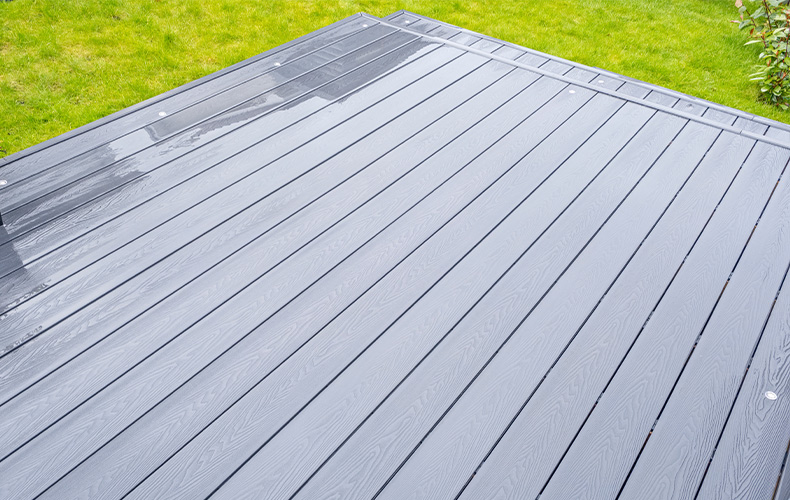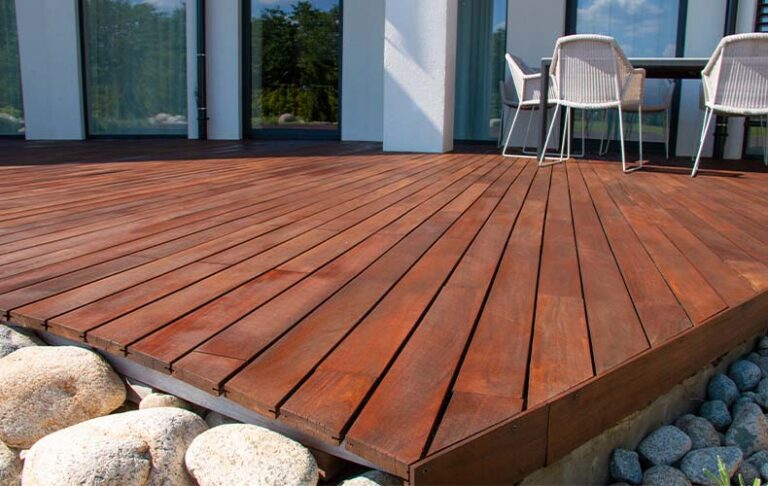As someone who’s constantly looking for ways to improve our outdoor space without adding more to my already-busy to-do list, decking has always felt like a smart solution. But when it comes to choosing between composite decking and traditional timber, the decision isn’t as straightforward as it seems.
Recently, we explored options for our own garden makeover and spent quite a bit of time weighing up the pros and cons. If you’re doing the same, here’s a breakdown to help make your choice easier.
Pros of Composite Decking
Composite decking is made from a blend of recycled wood fibres and plastic, which gives it a few major advantages. First, it’s low-maintenance – no sanding, staining, or sealing required. Just a quick clean now and then is enough to keep it looking good.
It’s also incredibly durable. Composite boards don’t splinter, crack, or warp in the same way that timber can, and they’re resistant to rot, mould, and insect damage. This makes them one of the best investments for you garden, A Mum Reviews highlights, if you want something that’s safe for kids and pets, and built to last.
Cons of Composite Decking
That said, composite timber isn’t without its downsides. The most noticeable one is the higher initial cost. Although it may save money in maintenance over time, you do need a bigger budget upfront.
Also, while composite decking has come a long way in terms of appearance, some still feel it lacks the natural charm of real wood. For many, there’s something about the warmth and grain of traditional timber that’s hard to replicate.
Finally, one issue we found was that the colour is fixed. You can’t simply sand and repaint it the way you can with timber, so what you buy is what you’re stuck with.

What About Traditional Timber?
Timber decking is loved for its natural beauty and lower upfront cost. It’s flexible in terms of finish and can be painted or stained in whatever shade suits your garden.
However, it does require more upkeep. Without regular treatment, timber is vulnerable to rot, fading, and splintering, which can be a real drawback if your weekends are already full.
Final Thoughts
If you’re deciding between the two, it’s worth speaking to experienced suppliers like the timber merchants Harlow Timber Group. They offer expert advice and a great range of both timber and composite options, helping you choose what works best for your home and lifestyle.
Have you made the switch to composite or stuck with classic timber? I’d love to hear what worked for you!
